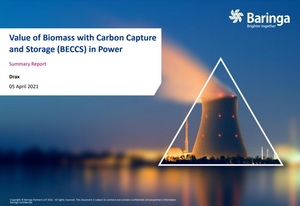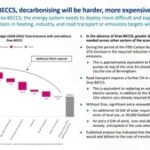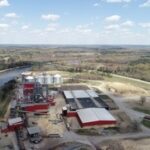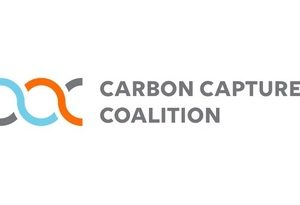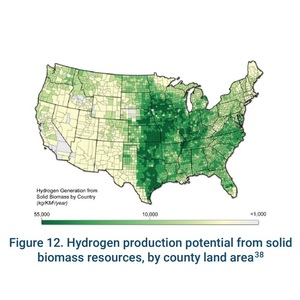Drax: BECCS offers less expensive way to meet UK climate goals
Energy Disrupter
ADVERTISEMENT
Drax Group plc released the results of a new study on April 12 that shows its planned bioenergy with carbon capture and storage (BECCS) projects will save the U.K. more than £4.5 billion ($6.18 billion) over the next decade as the country works to meet its climate goals.
The study, commissioned by Drax and completed by energy consultancy Baringa, evaluates the impact of deploying BECCS at scale as part of achieving the country’s climate change targets.
The report released by Baringa explains that Drax is considering the potential retrofit of two of its existing 630-megawatt (MW) biomass units with CCS. Each unit could deliver up to 4 million tons per year of negative emissions. A final investment decision on the BECCS projects will be required in 2024 to allow the first of these units to come online in 2027.
For the study, Baringa considered the role of negative emissions in reaching the U.K.’s net-zero goals, the role of BECC-power given the competing abatement options, and the role of the Drax projects as part of a broader need for BECCS-power.
According to the report, the capital cost of adding carbon capture at Drax’s facility is significantly lower than building a new BECCS facility. Converting the existing biomass units to BECCS at the facility would also secure the long-term future of the site, according to Baringa’s report. A carbon payment and power contract for difference (CfD) would underpin the necessary investment at the Drax site and enable the capture of 8 million metric tons of carbon dioxide per year. That volume of carbon capture would be a significant contribution to the 20 to 40 metric tons of carbon dioxide capture per year required by 2050 to meet the U.K.’s goals, the group said in the report.
The report calls the Drax-BECSS project a “no regrets” option, and notes that achieving net-zero will be significantly more expensive without BECCS-power. “Conversion of Drax’s existing biomass units can pave the way to a substantial program of new build BECCS and other negative emissions technologies, such as biomass gasification to produce hydrogen with negative emissions, with the optimum pathway being refined as technologies mature and costs evolve,” said Baringa in the report. “Drax BECCS can also provide an important ‘anchor project’ for development of the CO2 Transmission & Storage infrastructure as part of the Humber CCS cluster. Additionally, Drax’s consistent demand for biomass can aid in the development of sustainable biomass supply chains.”
Additional information is available on the Drax website.

